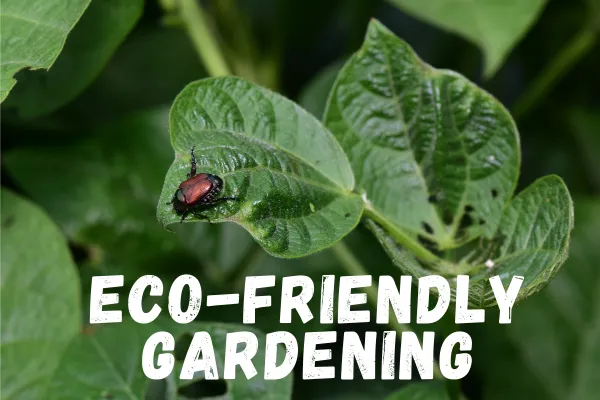Living Naturally & Healthy
Blog Post Library

Garden Protection Naturally: Essential Oils for a Healthier Garden
"To plant a garden is to believe in tomorrow." - Audrey Hepburn
Natural Pest Control: Using Essential Oils in Your Garden
Gardening should be a peaceful and rewarding hobby. After weeks of nurturing your little seedlings, you have beautiful lush growth, but nothing can ruin your hard work faster than an invasion of pests. Instead of reaching for chemical pesticides, why not turn to a more natural solution? Essential oils, with their potent fragrances and natural properties, can help keep your garden free from pests. Let’s dig in to how to use essential oils for natural pest control, ensuring your garden stays healthy and thriving without harmful chemicals.

Why Choose Essential Oils for Pest Control?
Using essential oils for pest control offers several benefits:
Natural and Non-Toxic: Essential oils are derived from plants and are free from harmful chemicals that can damage the environment and harm beneficial insects.
Effective: Many essential oils have been proven to repel a wide range of garden pests effectively.
Versatile: Essential oils can be used in various ways, from sprays to soil treatments.
Pleasant Aroma: Unlike chemical pesticides, essential oils leave a pleasant fragrance in your garden.
Understanding How Essential Oils Work
Essential oils can work as pest repellents due to their strong aromas and active compounds. Some oils interfere with the sensory receptors of insects, making your garden less attractive to them. Some oils also have antifungal and antibacterial properties, offering added protection to your plants.

Essential Oils for Common Garden Pests
Here are some of the most effective essential oils for repelling common garden pests:
Peppermint Oil: Effective against aphids, ants, and spiders.
Lavender Oil: Repels moths, fleas, flies, and mosquitoes.
Rosemary Oil: Keeps slugs, snails, and caterpillars at bay.
Eucalyptus Oil: Deters flies, mosquitoes, and cockroaches.
Cedarwood Oil: Useful for repelling fleas, moths, and ants.
Lemongrass Oil: Effective against mosquitoes and other flying insects.
Tea Tree Oil: Helps with aphids, whiteflies, and fungus gnats.
Clove Oil: Strong repellent for a variety of insects, including ants and beetles.
Thyme Oil: Deters cabbage worms and other common garden pests.
Cinnamon Oil: Effective against ants and helps prevent fungal diseases.
DIY Essential Oil Pest Control Sprays
Creating your own essential oil pest control spray is simple and cost-effective. Here are a few recipes to get you started:
Peppermint Ant Repellent Spray:
Ingredients:
10 drops of peppermint essential oil
1 cup of water
1 teaspoon of liquid dish soap
Instructions:
Mix the peppermint oil and water in a spray bottle.
Add the dish soap to help the mixture adhere to surfaces.
Shake well and spray around the base of plants, on soil, and near entry points to deter ants.

Lavender Mosquito Repellent Spray:
Ingredients:
10 drops of lavender essential oil
10 drops of citronella essential oil
1 cup of water
1 tablespoon of white vinegar
Instructions:
Combine lavender and citronella oil with water in a spray bottle.
Add the white vinegar and shake well.
Spray around seating areas and on yourself to keep mosquitoes at bay while working in the garden.
Rosemary Caterpillar Repellent Spray:
Ingredients:
10 drops of rosemary essential oil
1 cup of water
1 teaspoon of neem oil (optional for added effectiveness)
Instructions:
Mix rosemary oil and water in a spray bottle.
Add neem oil if using, and shake well.
Spray directly on plants affected by caterpillars.
Using Essential Oils in the Soil
Essential oils can also be used to treat soil and prevent pests from taking up residence:
Tea Tree Soil Treatment:
Ingredients:
5 drops of tea tree essential oil
1 gallon of water
Instructions:
Add tea tree oil to the water and mix well.
Water your plants with this mixture to help prevent root rot and deter soil-dwelling pests.

Safety Tips and Best Practices
While essential oils are natural, they are potent and should be used with care:
Dilute Properly: Always dilute essential oils with water or a carrier oil before applying them to plants.
Test First: Test any new spray on a small part of the plant to ensure it doesn’t cause damage.
Avoid Beneficial Insects: Be mindful of where you spray, as some oils can also repel beneficial insects like bees and butterflies.
Storage: Store your essential oils and mixtures in a cool, dark place to maintain their effectiveness.
Additional Benefits of Using Essential Oils
Beyond pest control, essential oils can contribute to the overall health and ambiance of your garden:
Improved Plant Health: Some oils, like tea tree and neem, have antifungal properties that can prevent diseases in plants.
Aromatic Garden: Essential oils add pleasant fragrances to your garden, making it a more enjoyable space for you and your visitors.
Eco-Friendly: Using essential oils reduces the need for chemical pesticides, making your gardening practices more environmentally friendly.

Using essential oils for natural pest control is a fantastic way to protect your garden while keeping it eco-friendly and healthy. With their powerful aromas and beneficial properties, essential oils offer a safe, effective, and pleasant-smelling alternative to chemical pesticides. By incorporating these oils into your gardening routine, you can enjoy a thriving garden free from pesky intruders. So, why not give these natural solutions a try? Your plants will thank you, and you’ll love the fresh, aromatic atmosphere they create. Happy gardening!


